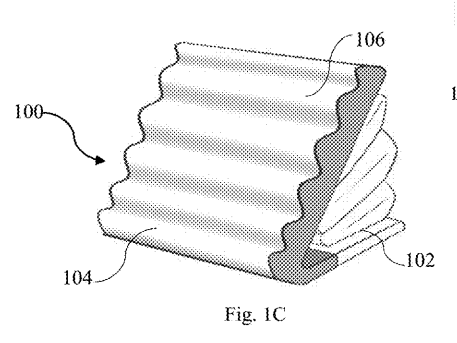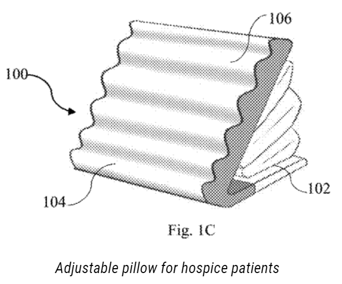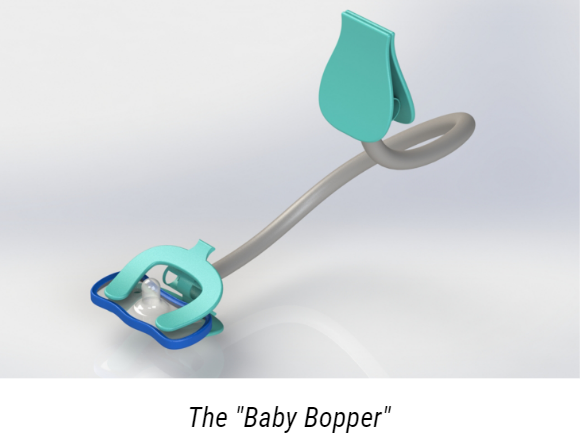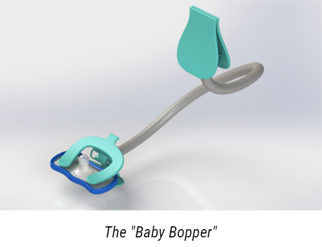As described in Helping the Inventors of Tomorrow’s Technology Today: Part 1, Lowenstein Sandler’s Patent Counseling & Prosecution team in Utah provides superior legal services to not only Fortune 500 companies, but to scientists, engineers, and entrepreneurs who might not otherwise have access to the resources they need to protect their intellectual property. Through a program run by Mi Casa Resource Center®, a job training center with the mission of educating, supporting, and training youth and adults on their path to economic success, the firm’s lawyers and patent agents have succeeded in guiding numerous underrepresented inventors in the creation of products that make a positive difference in consumers’ lives.
ProBoPat was started in response to the 2011 America Invents Act, which encourages the United States Patent & Trademark Office (USPTO) to “work with and support ... the establishment of pro bono programs designed to assist financially under-resourced independent inventors and small businesses.” The under-resourced classes specifically referenced by the federal legislation include racial minorities including the Hispanic and Black communities, and women.
The World Intellectual Property Association has reported that only 16.5 percent of inventors named in international patent applications in 2020 were women, and that over the past ten years, the number of women filing for patents has only increased by 3.8 percent. In selecting matters shared by ProBoPat for assistance in securing patent protection, Kevin O. Grange, managing partner of Lowenstein’s Utah office and partner in its Tech and Patent Counseling & Prosecution groups, says: “I’ve been very deliberate in choosing matters that stay within the spirit of what the programs were intended to serve.” By staying true to the law’s intent, Kevin and his team members like Sam Noel have helped a number of innovative women and other underrepresented inventors patent a variety of products that support consumers throughout every stage of life, literally from cradle to grave.
 Kevin observes that the female inventors are particularly adept at seeking solutions to challenges in their own daily lives that are also shared by multitudes of others, “coming up with some truly ingenious solutions.” He cites one creation by Stella Markova, which recently won the 2020 Bench to Bedside Competition for medical technology innovations at the University of Utah. Watching her family’s efforts to take care of a critically ill loved one, Stella noticed that hospice patients frequently need help sitting up, caregivers are not always available or physically able to assist, and hospital beds are often financially out of reach. Stella created a design for a wedge pillow that inflates incrementally like an air mattress, helping the patient find a comfortable and safe way to sit up with minimal effort and cost. The Utah team is currently working with Stella on a second patent application for an improved prototype to better enable scale for wider manufacturing and distribution.
Kevin observes that the female inventors are particularly adept at seeking solutions to challenges in their own daily lives that are also shared by multitudes of others, “coming up with some truly ingenious solutions.” He cites one creation by Stella Markova, which recently won the 2020 Bench to Bedside Competition for medical technology innovations at the University of Utah. Watching her family’s efforts to take care of a critically ill loved one, Stella noticed that hospice patients frequently need help sitting up, caregivers are not always available or physically able to assist, and hospital beds are often financially out of reach. Stella created a design for a wedge pillow that inflates incrementally like an air mattress, helping the patient find a comfortable and safe way to sit up with minimal effort and cost. The Utah team is currently working with Stella on a second patent application for an improved prototype to better enable scale for wider manufacturing and distribution.


At the other end of the life spectrum, Kevin assisted Maura Hemmert, a mother of four children under the age of four, who came up with a safe, hygienic and easy-to-use approach to “binkie management:” a pacifier holder that can clip to a car seat or high chair, give Mom a break, and prevent lost or dusty pacifiers from rolling on the floor. In her application to ProBoPat, Maura wrote: “I hope to create something that helps the lives of parents everywhere, and create a woman-owned business. I seek patent protection so we can have a company that provides honesty and quality to its consumers, without others trying to diminish our hard work and creativity.”
“For women like Stella and Maura, necessity has truly been the mother of invention,” says Kevin.


Kevin also represents a client named “JenJen” Francis, a Latina tech entrepreneur who sought a way to keep children entertained in an educational way during family nights out. She designed an app called "Cool Jellybeans!,” a playful augmented reality STEM-based kids’ rewards program for food-based businesses that benefits children, parents, and restaurants. The little ones can initiate a cute little avatar in a game app by scanning an image of the avatar on the restaurant’s napkin or kid’s menu, and directing the avatar in various activities in the game app by performing simple coding functions. They stay occupied and learn some fundamental STEM concepts, parents get some peace during dinner plus discounts and incentives to return to the restaurant, and the establishment instills brand loyalty in a happy family.

Sam also assisted a woman inventor with another product born of necessity. His client Kim Lopez found that bath time for her children created a sloppy, potentially dangerous mess of wet toys and slippery tiles. She invented a special box that fits over the lip of a tub, lets the water drain back into the bath, and prevents the hazard of scattered rubber duckies underfoot.
Other notable work by Lowenstein patent attorneys on behalf of underrepresented inventors includes patent counseling and prosecution for an active member of the U.S. Army, who designed a way to convert the excess heat released from oil refineries into a useable energy source; and the representation of a minority artist in developing a new kind of tattoo ink dispenser that improves hygiene and efficiency in this essential tool for a significant sector of small business.
Many of these patent applications are still being reviewed by the USPTO, or are otherwise several years away from mass manufacturer and distribution. Some of these inventors may eventually become paying clients of the firm as they find ways to monetize their ideas and require further protections. However, Kevin and his team are proud to support these entrepreneurs no matter where their ideas lead. Through their work conducting prior art searches, making filings, and educating clients on how to best take their concepts from idea to production, Lowenstein’s IP team plays an integral role in carrying out the mission of the America Invents Act by giving all inventors the chance to make the world a better place for themselves and others.
Kevin and his team are proud to support these entrepreneurs no matter where their ideas lead. Through their work conducting prior art searches, making filings, and educating clients on how to best take their concepts from idea to production, Lowenstein’s IP team plays an integral role in carrying out the mission of the America Invents Act by giving all inventors the chance to make the world a better place for themselves and others.









